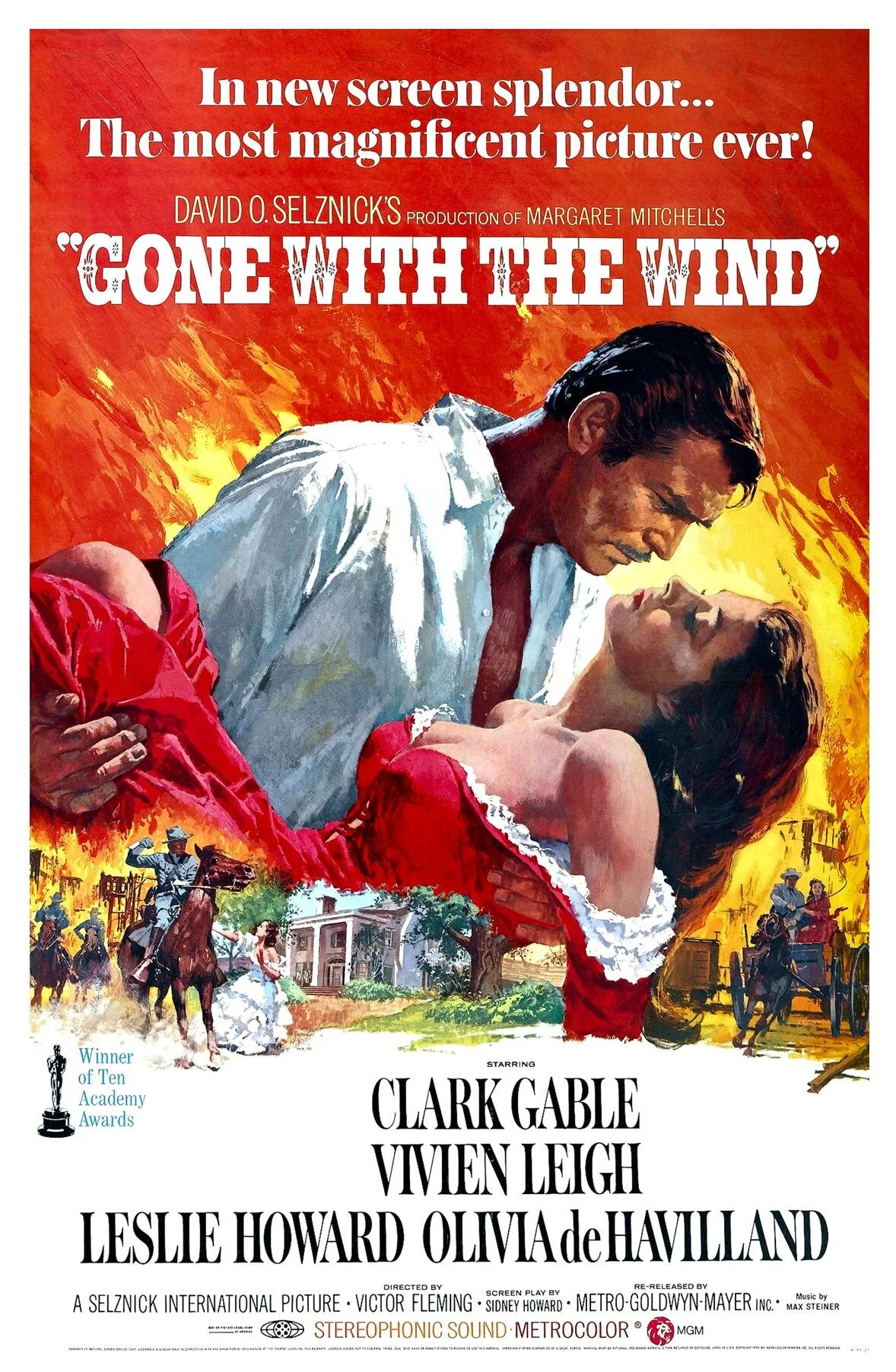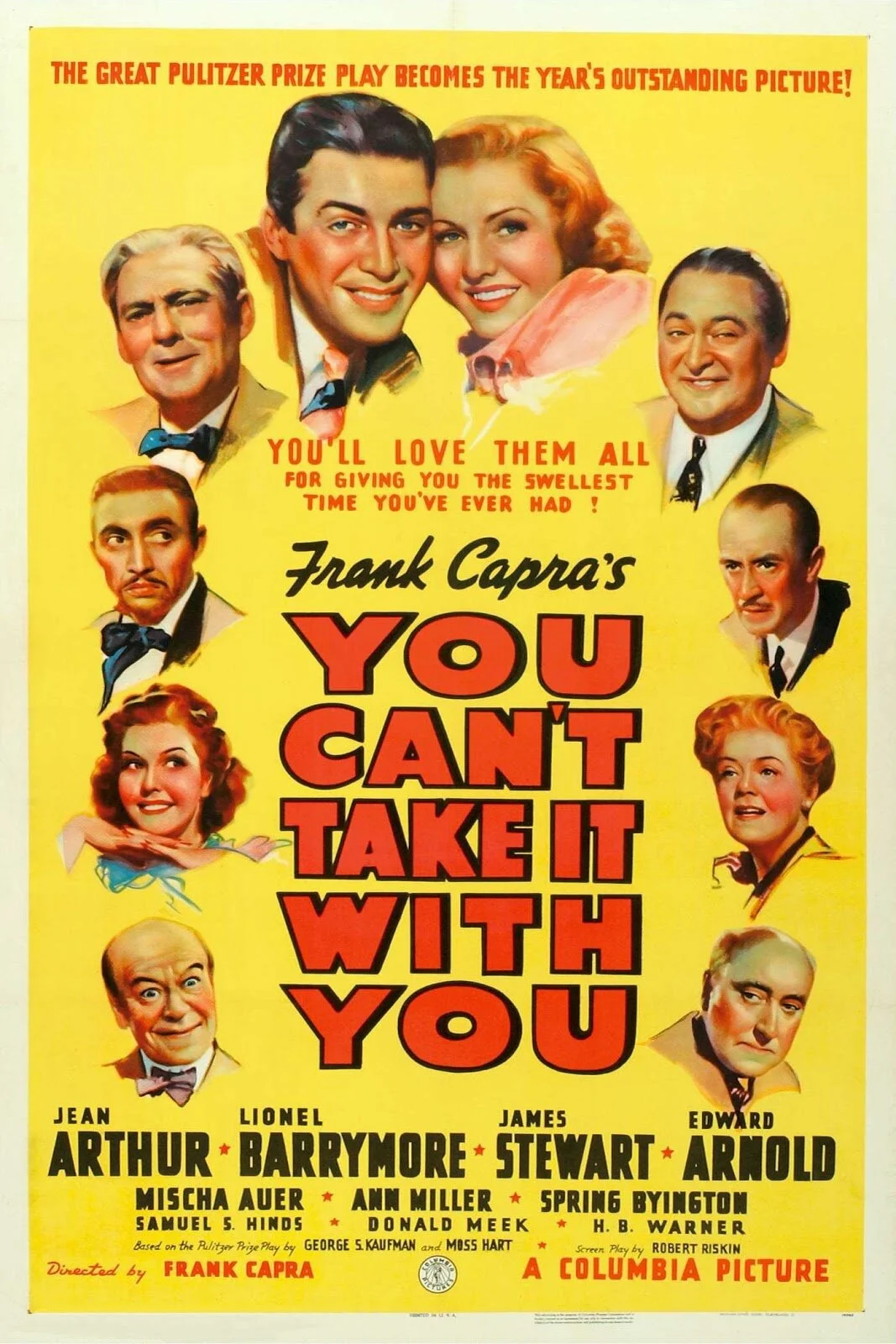Gone With the Wind (1939)
Written by Sidney Howard
Directed by Victor Fleming
So...what’s to be said, that hasn’t already been said? What new, fresh, bold perspective would I be able to bring to this behemoth of a cultural icon? I mean...everyone KNOWS this film. They may not have have seen it, but everyone knows it. It’s just a milestone that is almost too big to wrap one’s head around.
Almost.
I’ll point out that there’s nothing I’ll write in this review that you won’t find in at least five other reviews. It’s just impossible to say something new. I mean...just so you, the reader, understand.
This is the first film in this marathon that I had seen previously, and, actually, I feel that having watched the film before helped me appreciate the film more now in my second viewing.
Vivian Leigh (as Scarlett) and Hattie McDaniel (as Mammy) in roles that garnered Academy Awards for both, a historic win for McDaniel
My appreciation stems mostly from the technical perspective, rather than the performance aspect, but the performances aren’t bad either. The leading actors do their job very well, it’s just that the two leading characters are fascinatingly unlikeable. Scarlett, played by Vivien Leigh, is rude, self-centered, and twisted, really. Rhett, featuring Clark Gable in his third Best Picture film of the marathon, is that strain of man who always knows what’s best for a woman, despite, obviously, not being one. He, at least, seems to be marginally redeemable, until a scene later in the film (which I’ll talk about shortly). The one lone ray of sunshine is Olivia de Havilland’s Melanie, who is so unwaveringly loyal to...well, everyone, that she saves the film from drowning in its own murky despair. The three major black characters are stereotypical, to be sure, but Hattie McDaniel gives a great performance that is both humorous and moving (on a very important note: Hattie McDaniel became the first Black actor to win an Academy Award for her performance in this film).
The burning of Atlanta, one of the most visually impressive sequences of the film
From a technical viewpoint, the film is rich with its details. Not only is this the first color film to win Best Picture, it’s cinematography is breathtaking. Most of its dazzling shots come in the first half of the film (the burning of Atlanta, or the spectacular crane shot of Scarlett amidst the countless wounded Confederate soldiers comes to mind), but the film is filled with gorgeous costumes, lavish scenery, and a bombastic score (although this point doesn’t always succeed).
Gable and Leigh as awful people
The main issues I have with this film are, really, the main issue presented within the film itself: Scarlett and Rhett are terrible people that, when together, have an unhealthy streak that explodes beyond control. As I mentioned earlier, these are not people to cheer for, and the film seems to delight in presenting to the audience just WHY they shouldn’t be, yet the viewer is still rooting for them. Even after Rhett rapes Scarlett (implied rape, but rape), her actions the following morning (being blissfully happy) almost beguile the audience into thinking that maybe everything will be okay between them. After Rhett finally leaves (and says his iconic line), Scarlett STILL doesn’t understand that she needs to fix herself first. It’s like watching a train wreck that takes nearly four hours to finally grind to a halt.
I don’t think Gone With the Wind is bad, but I also don’t think it’s fantastic either. A solid 45 minutes could probably be trimmed off, but it’s a great symbolic evolution of earlier winners Cimarron or Cavalcade, stories of the passage of time and the effect of choices across time. Gone With the Wind doesn’t cover as much time as those earlier films, but it’s a surprisingly closely focused film of a group of people caught in a life-changing time, most of whom make really terrible decisions.
FINAL GRADE: B-





